If you’re searching for a Chatbot.com alternative, you’re probably looking for a way to streamline customer interactions and provide accurate responses to common customer queries. Chatbots have become essential for ecommerce businesses, SaaS companies, and customer support teams, helping them manage customer inquiries, improve customer engagement, and deliver excellent customer support.
This post will explore 12 alternatives to Chatbot.com that offer features like seamless integration, ai-powered chatbots, and intuitive interfaces. Whether you’re focused on lead generation, automating customer queries, or offering live chat software with multi-channel support, there’s a platform tailored for your needs.
Key Features to Look for in a Chatbot Platform
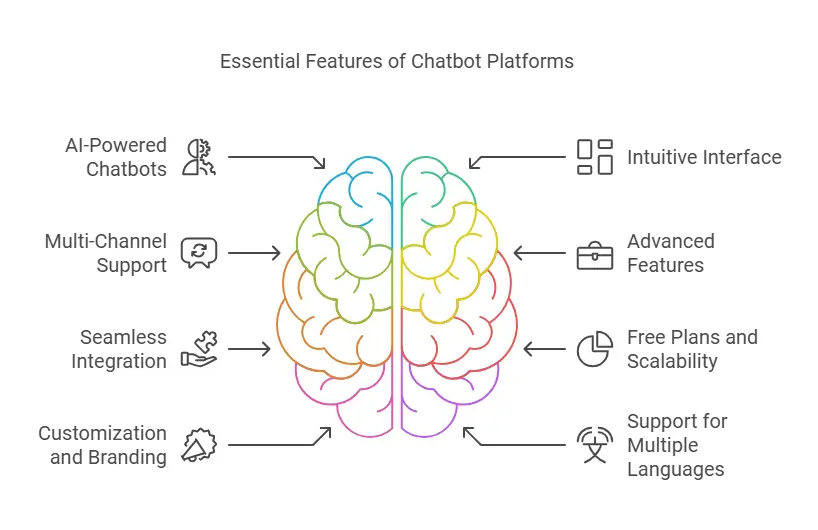
When evaluating a chatbot solution, it’s important to focus on features that align with your business goals. Whether you’re looking to improve customer interactions, enhance customer engagement, or streamline customer support, these are the key features you should consider:
1. AI-Powered Chatbots
Platforms with advanced AI models provide accurate responses and handle common customer queries effectively. These tools also adapt to customer behavior over time, continuously improving their capabilities.
2. Intuitive Interface
A user-friendly interface makes it easy for your team to manage and optimize the chatbot. Look for platforms with drag-and-drop chatbot builders that allow non-technical users to create chatbots seamlessly.
3. Multi-Channel Support
The best chatbots integrate with multiple messaging apps like Facebook Messenger, WhatsApp chatbots, and other channels, ensuring you reach website visitors and app users alike.
4. Advanced Features
Some platforms offer advanced capabilities like ticketing systems, sentiment analysis, or data protection to handle sensitive customer data and ensure compliance.
5. Seamless Integration
Ensure the platform integrates with other tools in your tech stack, such as CRM systems, helpdesk software, and sales teams tools. This ensures smoother workflows and better use of contact data for personalized interactions.
6. Free Plans and Scalability
Many platforms offer a free plan for basic use, allowing businesses to test out features before committing. If your needs grow, having access to unlimited chatbots, additional features, and scalable pricing options is key.
7. Customization and Branding
Customizable chatbots that reflect your brand voice and style can improve the customer experience and increase trust among users.
8. Support for Multiple Languages
If you serve a global audience, pick a platform with multi-language support to handle diverse user queries efficiently.
These features will help you choose a chatbot platform that not only provides instant answers but also helps your business automate tasks, interact with users across various platforms, and improve customer satisfaction.
Top 12 Chatbot.com Alternatives
1. Desku
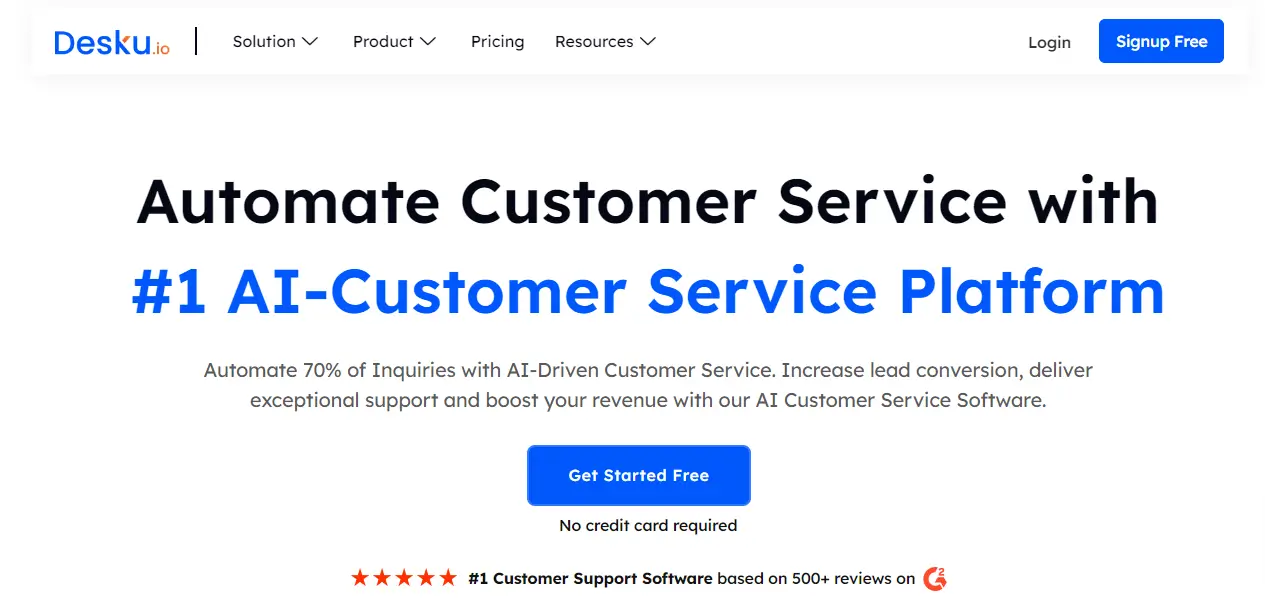
Desku stands out as a robust chatbot platform designed to simplify customer inquiries and improve customer engagement. Its features are tailored for ecommerce businesses, customer support teams, and SMBs looking for a powerful yet user-friendly interface.
- Key Features:
- Drag-and-drop chatbot builder for easy customization.
- AI-powered chatbots capable of handling common customer queries and offering relevant responses.
- Integration with popular messaging apps like Facebook Messenger and WhatsApp chatbots.
- Multi-channel support to interact with website visitors and other users seamlessly.
- Ticketing system to streamline customer support workflows.
- Pros:
- Supports businesses in analyzing customer behavior and improving their brand voice.
- Offers advanced capabilities like a built-in knowledge base and data analysis tools.
- Affordable plans with a free plan to get started.
- Cons:
- May require additional setup for complex integrations.
- Best For:
- Businesses focused on increasing customer satisfaction and automating customer interactions.
2. Tidio
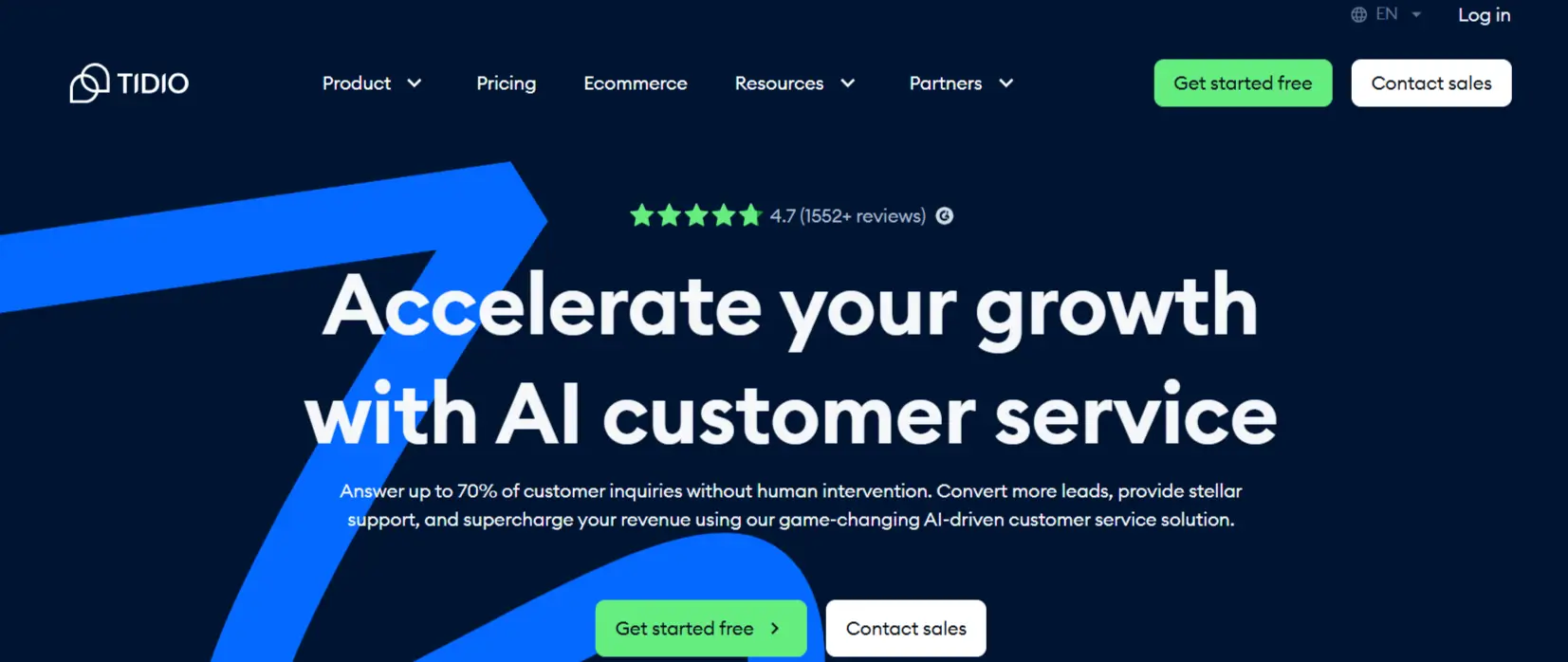
Tidio is a versatile chatbot solution that combines live chat and automation, making it a favorite for small businesses and e-commerce.
- Key Features:
- Easy-to-use chat icon for real-time customer communication.
- AI-driven virtual assistants for automating customer queries.
- Multi-language support for global audiences.
- Seamless integration with CRMs and email marketing tools.
- Pros:
- Quick setup and intuitive interface.
- Free plan available for basic features.
- Useful for both live chat and chatbot services.
- Cons:
- Limited features on the free plan.
- AI responses can lack depth for complex queries.
- Best For:
- Ecommerce businesses and SMBs looking for an affordable live chat solution.
3. Intercom
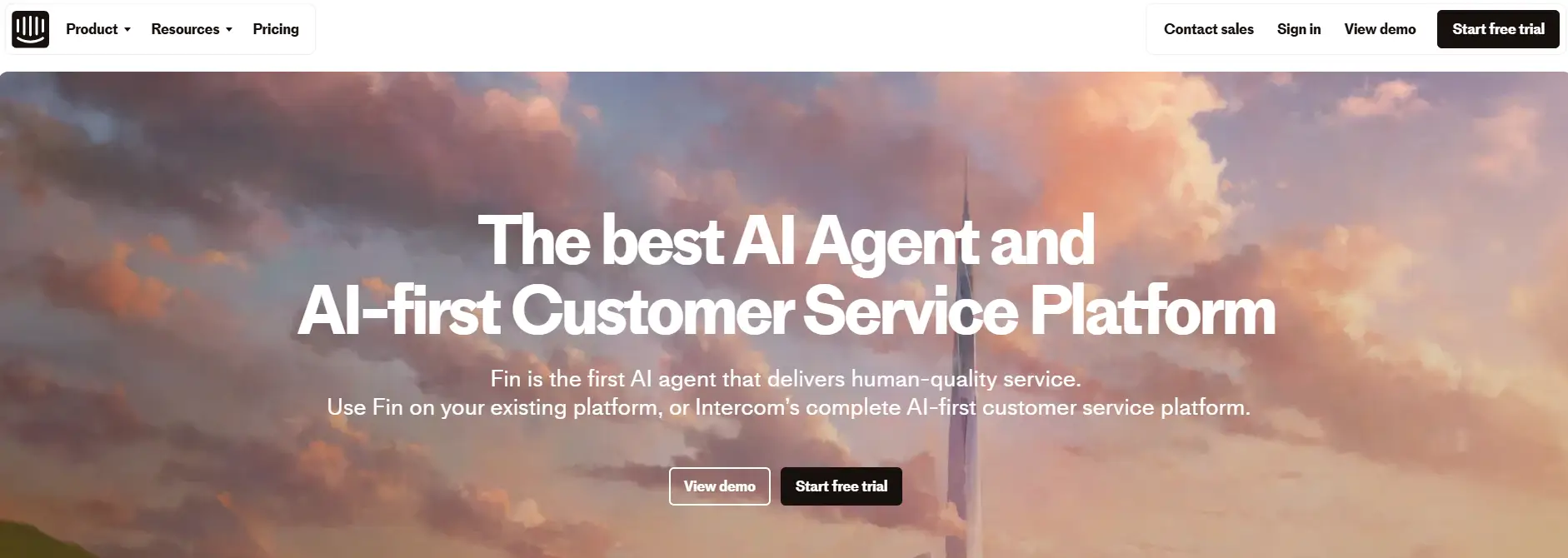
Intercom is a comprehensive platform combining live chat software, chatbots, and customer messaging solutions to deliver personalized support.
- Key Features:
- Sophisticated ai tools for routing and automating customer inquiries.
- Customizable messaging tailored to specific user behaviors.
- Integration with various CRMs and third-party tools.
- Pros:
- Highly scalable, suitable for businesses of all sizes.
- Offers detailed insights into customer behavior.
- Intuitive design and customization options.
- Cons:
- Pricing can be steep for smaller businesses.
- Limited free plan options.
- Best For:
- Medium to large enterprises seeking personalized customer engagement.
4. Drift
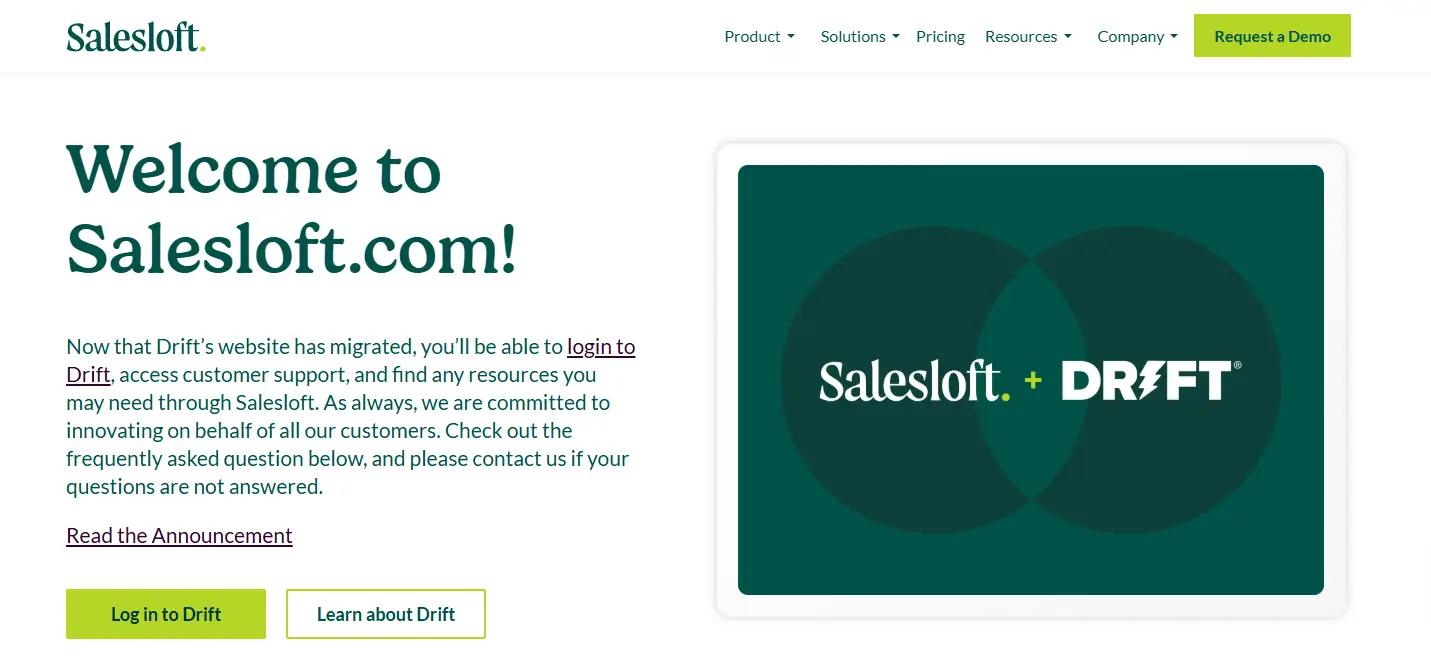
Drift specializes in conversational marketing and sales enablement, offering chatbots to drive lead generation and qualify prospects.
- Key Features:
- AI-powered chatbot for engaging users in real-time.
- Tools for data analysis and lead scoring.
- Integration with sales CRMs like Salesforce and HubSpot.
- Pros:
- Focused on improving sales team productivity.
- Supports personalized conversations to boost conversion rates.
- Cons:
- Geared more towards sales rather than support.
- Limited functionality on lower-tier plans.
- Best For:
- Sales-driven organizations looking to enhance customer interactions.
5. Freshchat
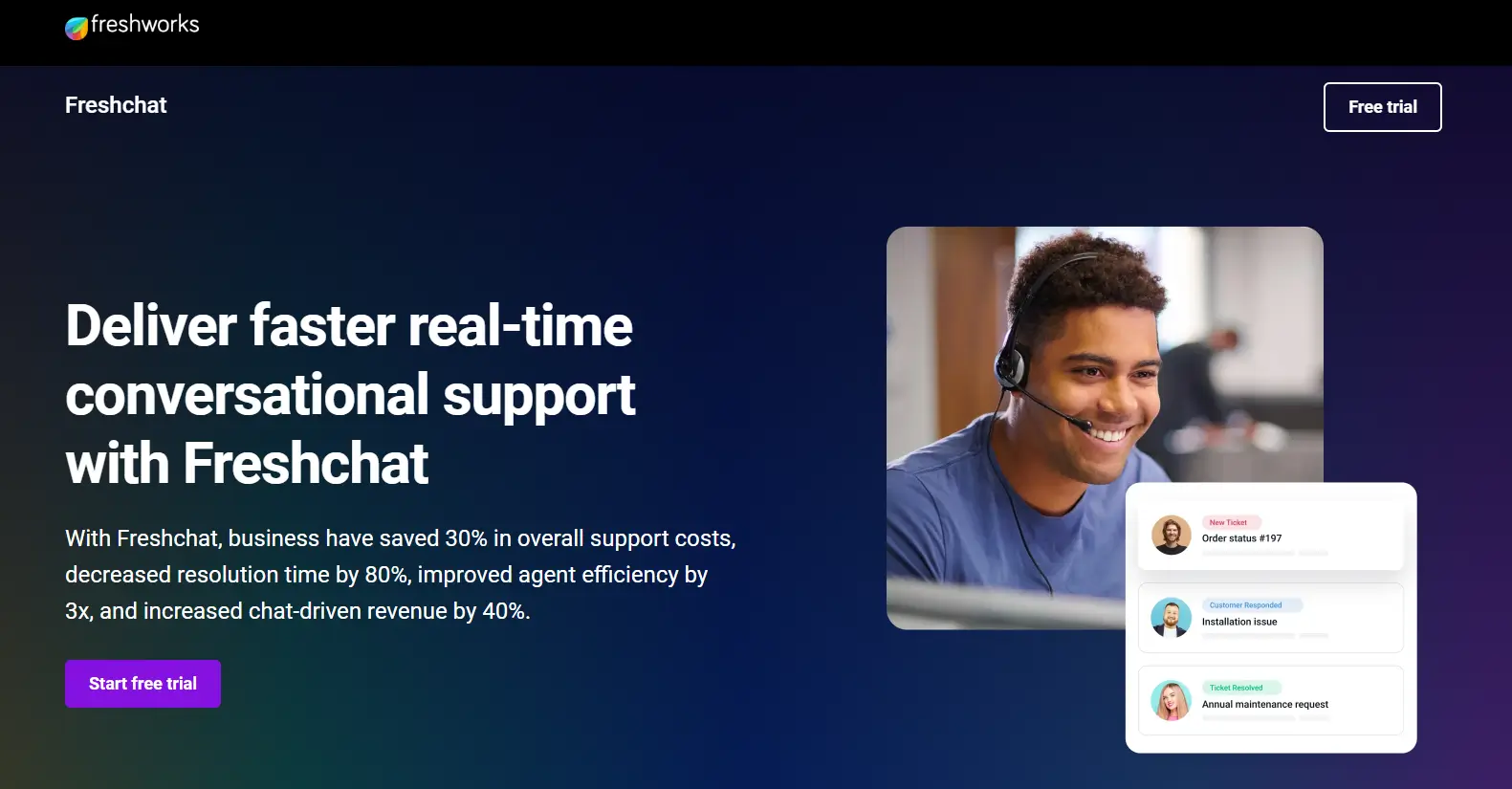
Freshchat, part of the Freshworks ecosystem, offers a modern customer messaging platform with robust chatbot features.
- Key Features:
- AI-driven customer support automation.
- Multi-channel support for websites, apps, and messaging platforms.
- Built-in ticketing and CRM integration.
- Pros:
- Excellent for businesses already using other Freshworks products.
- Customizable workflows and chat flows.
- Cons:
- Can be complex to configure for beginners.
- Best For:
- Mid-sized businesses requiring an all-in-one solution.
6. Zendesk Chat
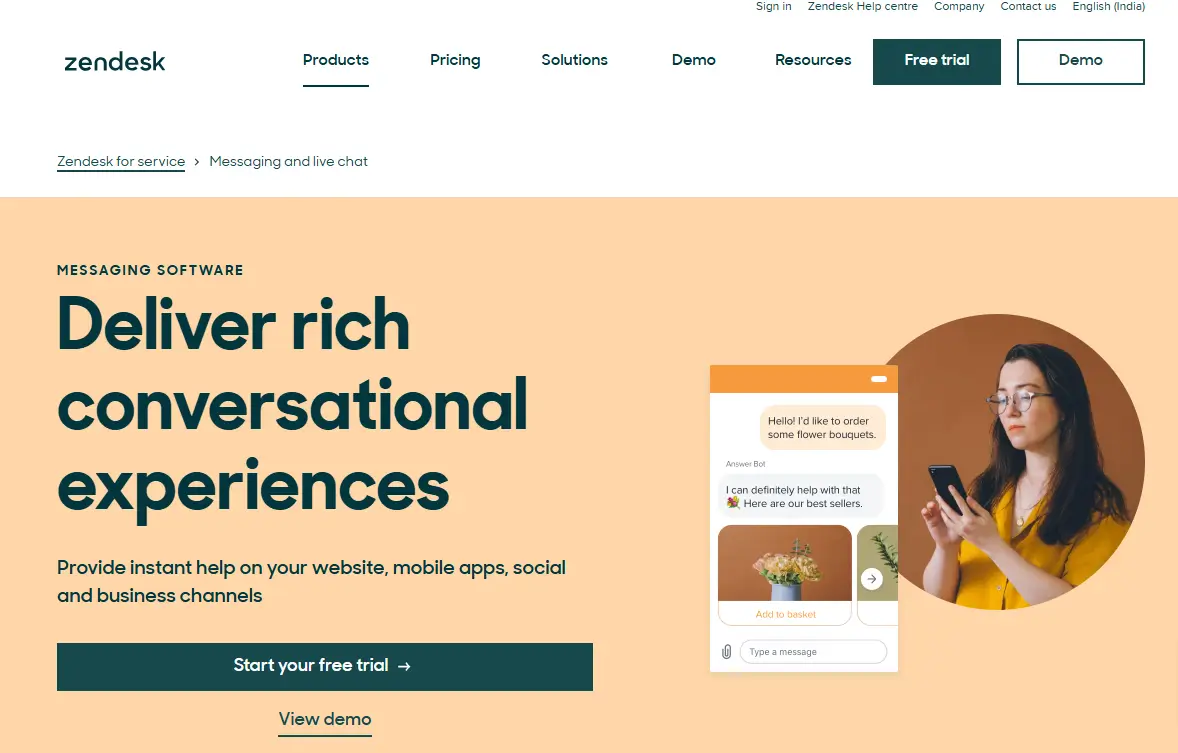
Zendesk Chat provides an advanced chatbot solution integrated with its CRM, ensuring seamless customer support experiences.
- Key Features:
- AI-powered tools for handling repetitive customer queries.
- Real-time analytics and reporting features.
- Easy integration with existing customer service tools.
- Pros:
- Great for managing high volumes of customer interactions.
- Scalable plans to fit growing businesses.
- Cons:
- Advanced features are locked behind higher-tier plans.
- Best For:
- Enterprises managing complex customer messaging platforms.
7. ChatGPT (OpenAI)
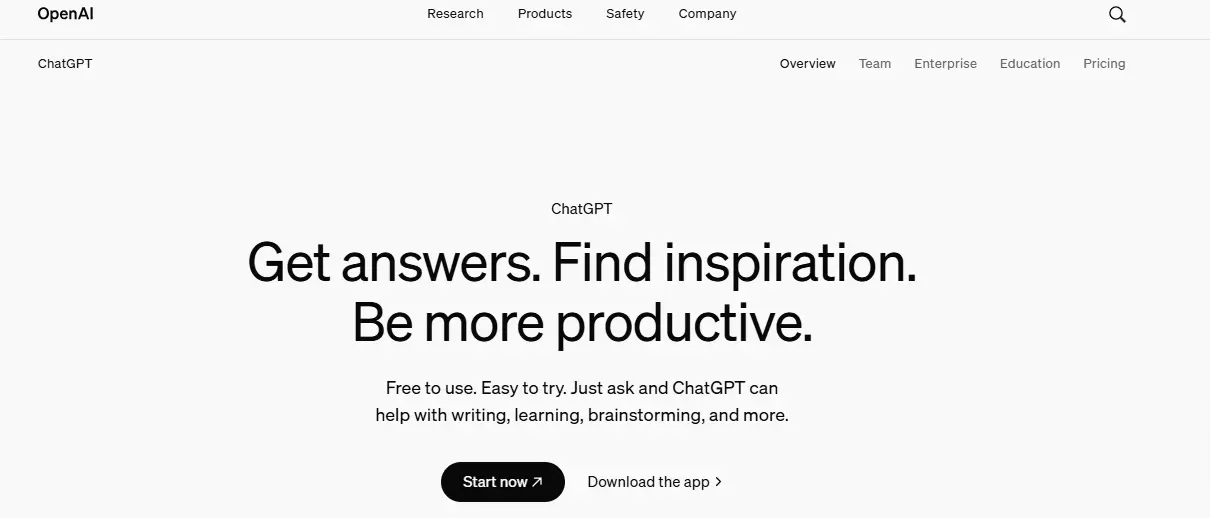
ChatGPT leverages artificial intelligence to offer versatile conversational AI for handling common customer queries and generating relevant responses.
- Key Features:
- Highly adaptive AI assistant capable of supporting various industries.
- Customizable integrations and API options.
- Detailed insights into user queries and needs.
- Pros:
- Easy to train for specific brand voice and requirements.
- Offers unmatched conversational fluency.
- Cons:
- Limited pre-built templates compared to dedicated chatbot platforms.
- Best For:
- Businesses looking for highly customizable ai-powered chatbots.
8. Crisp
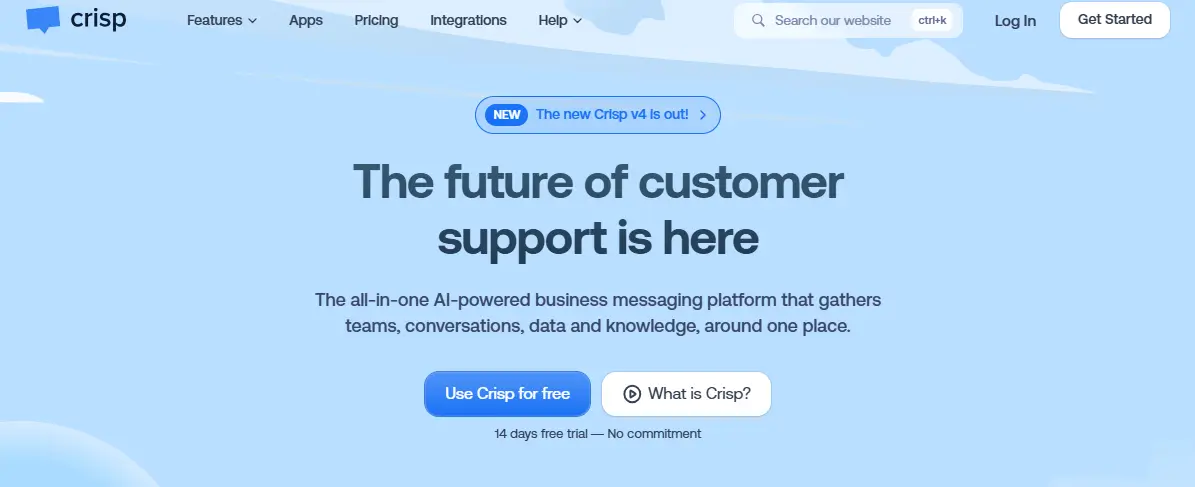
Crisp is an all-in-one customer engagement platform offering chatbots, live chat, and knowledge base tools.
- Key Features:
- Unified inbox for all customer communications.
- Seamless integration with CRM and helpdesk tools.
- Support for lead generation through automation.
- Pros:
- Simple setup with a focus on team collaboration.
- Affordable pricing plans.
- Cons:
- Limited AI capabilities for advanced automation.
- Best For:
- Small teams seeking streamlined customer support solutions.
9. HubSpot Chatbot
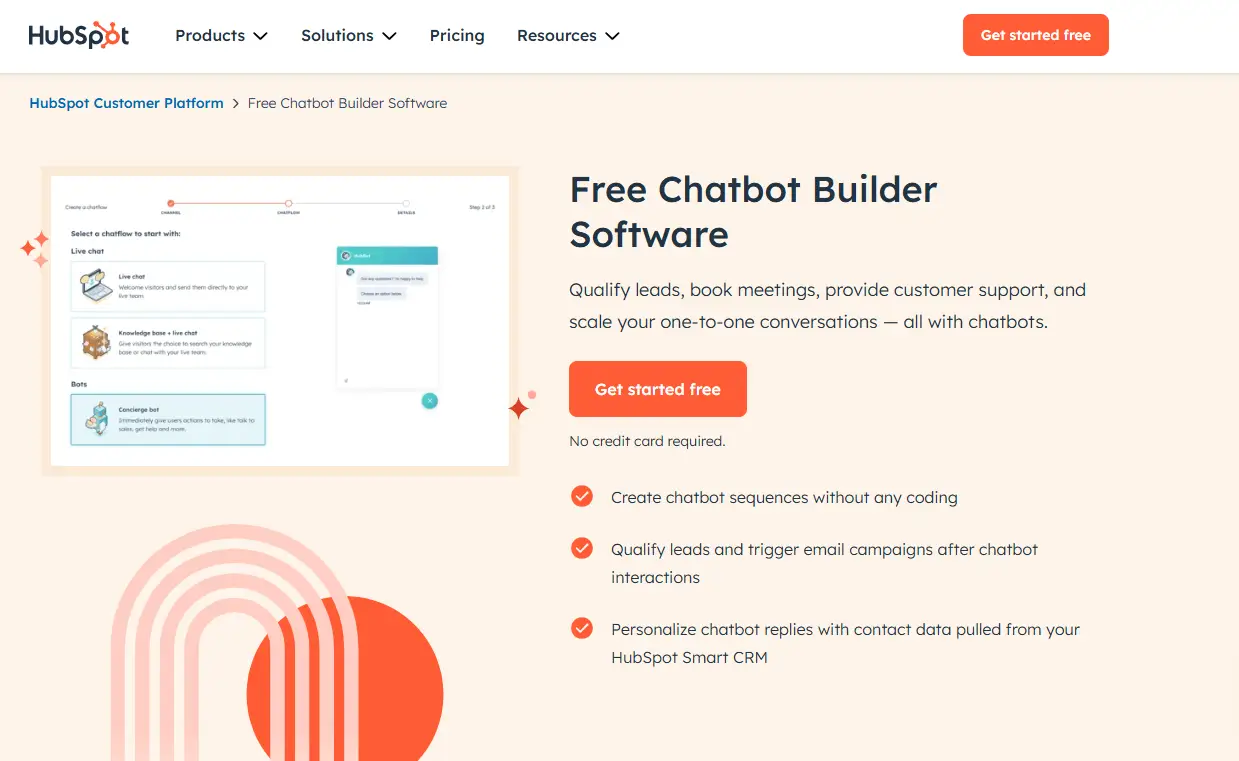
HubSpot Chatbot is designed for businesses already using the HubSpot ecosystem, focusing on improving customer interactions and sales workflows.
- Key Features:
- Automated chatbots integrated with HubSpot CRM.
- Drag-and-drop chatbot builder for quick customization.
- Real-time customer data syncing.
- Pros:
- Free with HubSpot CRM.
- Intuitive for sales and support teams.
- Cons:
- Limited functionality outside the HubSpot ecosystem.
- Best For:
- HubSpot users looking to enhance customer inquiries management.
10. ManyChat

ManyChat is ideal for ecommerce businesses using social media platforms like Facebook Messenger and WhatsApp for customer engagement.
- Key Features:
- Pre-built templates for social media chatbots.
- Support for promotions, sales, and customer support.
- Pros:
- Perfect for small businesses leveraging social platforms.
- Affordable plans and easy setup.
- Cons:
- Limited focus on non-social media channels.
- Best For:
- Social media-driven ecommerce businesses.
11. Landbot
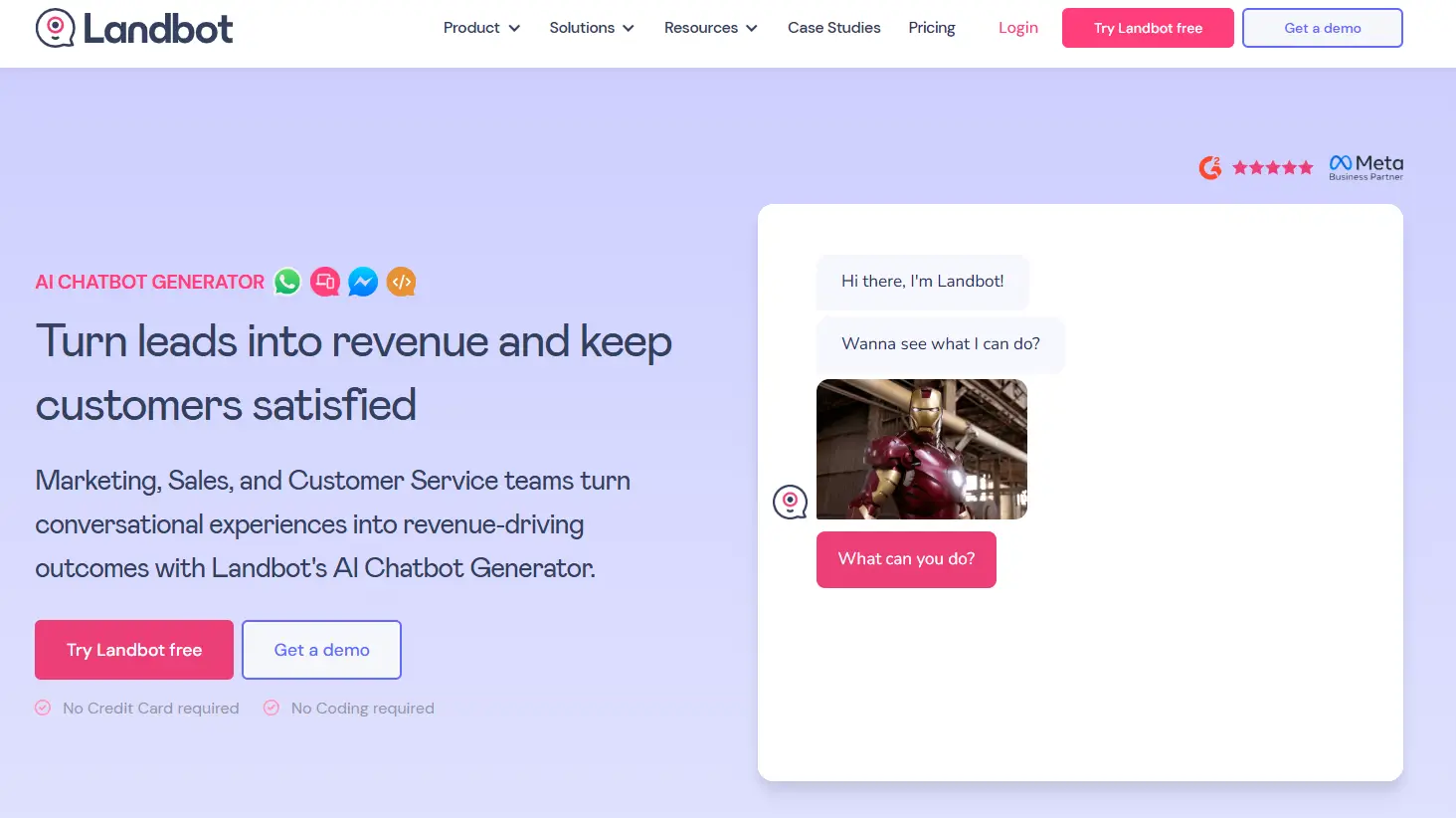
Landbot offers a visual, no-code chatbot builder that focuses on creating conversational workflows for lead generation and support.
- Key Features:
- Customizable workflows for tailored customer experiences.
- Integration with external tools like Zapier and Slack.
- Pros:
- Easy to use with a drag-and-drop interface.
- Great for engaging website visitors.
- Cons:
- Limited multi-channel support.
- Best For:
- Teams focusing on conversational marketing.
12. Perplexity AI
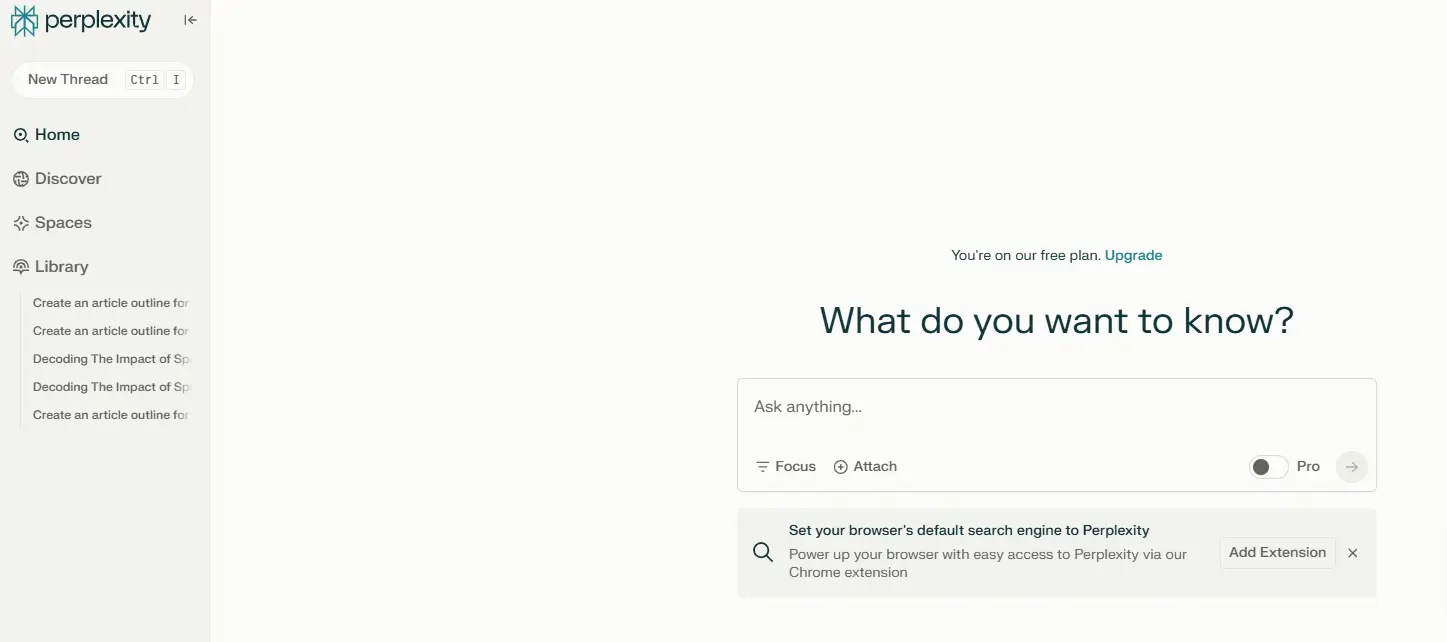
Perplexity AI is an innovative platform that leverages advanced ai tools for data analysis, image generation, and virtual assistance.
- Key Features:
- Conversational AI capable of providing deep insights.
- Support for creative tasks like generating visual content.
- Pros:
- Cutting-edge technology with unique features.
- Adaptable to various industries.
- Cons:
- Still evolving and may lack some business-focused integrations.
- Best For:
- Innovative companies seeking experimental AI solutions.
Comparison Table: Chatbot.com Alternatives
Here’s a comparison of the Top 12 Chatbot.com alternatives to help you quickly evaluate their key features, pricing, and suitability:
| Platform | Key Features | Best For | Free Plan | Multi-Channel Support | AI-Powered Chatbot | Pricing |
|---|---|---|---|---|---|---|
| Desku | Drag-and-drop builder, ticketing system | SMBs, ecommerce businesses | Yes | Yes | Yes | Starts at $29/month |
| Tidio | Live chat, multi-language support | Small businesses, ecommerce | Yes | Yes | Yes | Starts at $19/month |
| Intercom | Customizable workflows, CRM integrations | Medium to large enterprises | No | Yes | Yes | Starts at $74/month |
| Drift | Conversational marketing, sales tools | Sales-driven organizations | No | Yes | Yes | Custom pricing |
| Freshchat | Integrated with Freshworks suite | Mid-sized businesses | Yes | Yes | Yes | Starts at $15/month |
| Zendesk Chat | Ticketing system, analytics | Enterprises | No | Yes | Yes | Starts at $19/month |
| ChatGPT | AI conversational capabilities | Custom solutions | No | Customizable | Yes | Pay-as-you-go |
| Crisp | Unified inbox, lead generation | Startups and small teams | Yes | Yes | Yes | Starts at $25/month |
| HubSpot Chatbot | Integrated with HubSpot CRM | HubSpot users | Yes | Yes | Yes | Free with CRM |
| ManyChat | Social media-focused automation | Social media-driven businesses | Yes | Limited to social media | Yes | Starts at $15/month |
| Landbot | No-code builder, conversational workflows | Marketing-focused teams | Yes | Limited | Yes | Starts at $30/month |
| Perplexity AI | Advanced AI tools, image generation | Tech-savvy companies | No | Customizable | Yes | Custom pricing |
Summary of Features
- AI-Powered Chatbots: All platforms except basic plans offer AI tools for automated responses and customer inquiries.
- Free Plans: Platforms like Desku, Tidio, and HubSpot Chatbot offer basic free plans.
- Multi-Channel Support: Most platforms support messaging apps like Facebook Messenger and WhatsApp, but ManyChat specializes in social platforms.
- Custom Pricing: High-end platforms like Intercom, Drift, and Perplexity AI often require contacting sales for pricing tailored to your needs.
Tips to Choose the Right Chatbot Platform
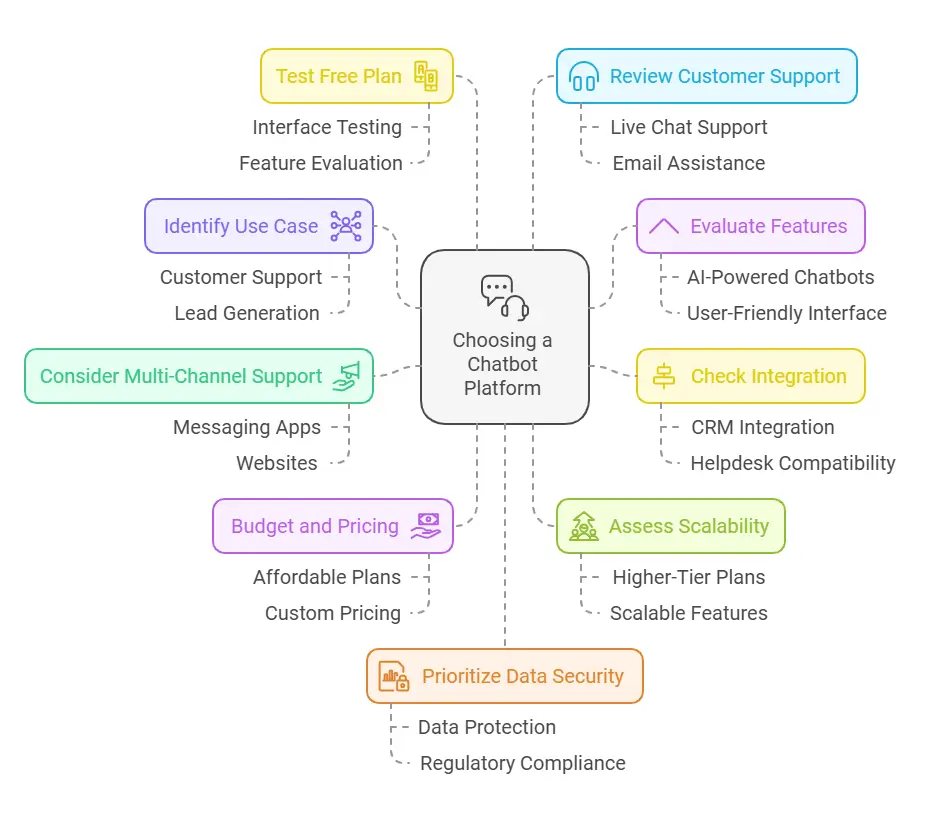
Finding the best chatbot solution depends on your business needs and goals. Here are some tips to guide your decision:
1. Identify Your Primary Use Case
- Define whether you need a chatbot for customer support, lead generation, ecommerce, or another purpose.
- For example, ecommerce businesses might prioritize multi-channel support for platforms like Facebook Messenger and WhatsApp chatbots, while B2B businesses may focus on CRM integration.
2. Evaluate the Features You Need
- Look for features that align with your goals:
- AI-powered chatbots for accurate responses and common customer queries.
- A chatbot builder with a user-friendly interface for easy customization.
- Advanced capabilities like a ticketing system or knowledge base for support teams.
3. Check for Seamless Integration
- Ensure the platform integrates with your existing tools like CRMs, helpdesks, and sales team tools.
- For example, Desku, Zendesk Chat, and HubSpot Chatbot excel in seamless integration with CRMs.
4. Consider Multi-Channel Support
- Opt for platforms that support messaging apps, websites, and other channels to connect with users wherever they are.
- Platforms like Tidio and Crisp are strong contenders for this feature.
5. Budget and Pricing
- Evaluate your budget and check the pricing structure of each platform.
- Platforms like ManyChat and Tidio offer affordable plans, while Intercom and Drift cater to larger enterprises with custom pricing.
6. Assess Scalability
- If you expect to grow, choose a platform with scalable pricing and features, such as Desku or Zendesk Chat, which offer higher-tier plans as your needs expand.
7. Test the Free Plan
- Leverage free plans to test the platform’s intuitive interface, features, and customer experience before committing to paid versions.
- Platforms like HubSpot Chatbot and Desku provide great free options to start.
8. Review Customer Support
- Ensure the platform offers excellent customer support for troubleshooting and assistance. Look for live chat, email, or knowledge base support.
9. Prioritize Data Security
- Choose platforms that prioritize data protection and comply with regulations to safeguard customer data.
With these tips, you can narrow down your choices and select the platform that will help you streamline customer interactions, automate repetitive tasks, and improve customer satisfaction.
FAQs
1. What is the best Chatbot.com alternative for small businesses?
For small businesses, Desku and Tidio are great options. They offer affordable pricing, user-friendly interfaces, and essential features like AI-powered chatbots, multi-channel support, and seamless integration with other tools.
2. Do these alternatives provide free plans?
Yes, many alternatives like Desku, Tidio, and HubSpot Chatbot offer free plans. These are ideal for testing the platform’s features before upgrading to paid plans for advanced functionalities.
3. Which chatbot platforms work best for e-commerce businesses?
E-commerce businesses often benefit from platforms like Desku, ManyChat, and Crisp. These platforms provide multi-channel support, integration with messaging apps like Facebook Messenger and WhatsApp, and tools for lead generation.
Conclusion
Choosing the right Chatbot.com alternative depends on your business needs, goals, and budget. Platforms like Desku stand out for their affordability, user-friendly interface, and multi-channel support, making them ideal for ecommerce businesses, SMEs, and customer support teams.
For small businesses, options like Tidio and Crisp provide a great starting point with free plans and essential features like AI-powered chatbots and live chat software. Enterprises looking for more advanced solutions may find platforms like Zendesk Chat and Intercom better suited for scalability and robust features.
No matter your choice, ensure the platform aligns with your goals—whether that’s automating customer interactions, generating leads, or improving customer engagement. Remember to test out free plans or demos and leverage seamless integrations to maximize the value of your chatbot investment.


